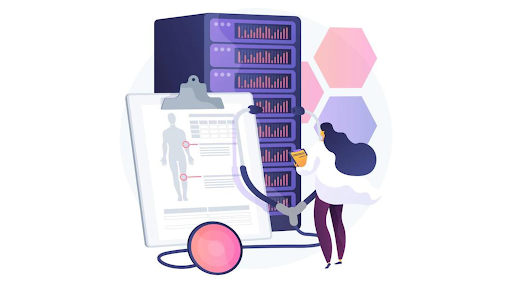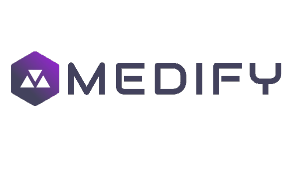
EHR (Electronic Health Record) vs. EMR (Electronic Medical Record)
What is the difference between an EHR and an EMR?
Although some practitioners mix the words EHR and EMR, the advantages they provide differ substantially. An EMR (electronic medical record) is a digital version of a chart that contains patient information and is maintained on a computer, whereas an EHR (electronic health record) is a digital record of health information.
Practice Fusion is a cloud-based EHR system that securely keeps data on external servers and is accessible from any device with an internet connection, whereas server-based EHR systems store data on a personal server or in a data centre.
DIFFERENCES BETWEEN EHR AND EMR
EHR (electronic health records)
EMR (electronic medical record)
- A digital record of a patient’s health information.
- Streamlined exchange of updated, real-time information with other doctors and labs, etc.
- Allows a patient’s medical information to move with them.
- Access to tools for making decisions for providers.
- A computerised representation of a chart.
- Not intended to be shared outside of the specific office.
- Patient record does not readily transfer outside of the practise.
- Used primarily by doctors for diagnosis and treatment.
DIFFERENCES BETWEEN EHR AND EMR
EHR (electronic health records)
- A digital record of a patient’s health information
- Streamlined exchange of updated, real-time information with other doctors and labs, etc.
- Allows a patient’s medical information to move with them.
- Access to tools for making decisions for providers.
EMR (electronic medical record)
- A computerised representation of a chart.
- Not intended to be shared outside of the specific office.
- Patient record does not readily transfer outside of the practise.
- Used primarily by doctors for diagnosis and treatment.
What does an EMR (electronic medical record) mean?
The EMR, or electronic medical record, includes all of the information found in a paper document, such as medical history, diagnosis, prescriptions, vaccination dates, and allergies. While EMRs operate effectively within an operation, they are limited in their ability to go outside of the clinic. In reality, the patient’s medical record may need to be printed and shipped in order for another clinician to see it.
What does an EHR (electronic health record) mean?
An EHR, or electronic health record, is a digital record of medical data. It includes all of the information found on a paper chart — and a lot more. Past medical history, vital signs, progress notes, diagnoses, prescriptions, vaccine dates, allergies, test data, and imaging results may all be included in an EHR. It may also include other pertinent information, such as insurance information, demographic information, and data imported from personal wellness devices.
Medify offers an EHR solution that promotes safe health information sharing. It provides the potential for health care facilities to expand their capabilities in order to apply improved working methods and provide new services to patients, doctors, and pharmacies.
EHRs are the future of healthcare because they provide critical data that may assist all providers in the healthcare ecosystem coordinate care.
What are the benefits of an EHR over an EMR?
- In comparison to paper records, a digital patient-record (EHR) system can give information management capabilities to assist doctors to provide better care by organizing, analyzing, and reacting to data more effectively.
- The data moves whether with the patient, a specialist, a hospital, a nursing home, the next state, or even across the nation. EHR systems are intended for use by everyone engaged in the patient’s care, including the patient.
What are the benefits offered by Medify?
Medify is a 24×7 White-Label Health Suite geared to be the ultimate healthcare provider for three main protagonists of this industry: Doctors, Pharmacists, and Patients.
- Effective collaboration between Pharmacies and Doctors: Medify facilitates Doctors to effectively collaborate with Pharmacies on the dispensation of drugs and medicines, thereby improving patient care.
- Data Processing Rights Guaranteed: Medify assures that all user data is safe, protected, and processed in an ethical manner.
- A 24-hour virtual assistant for Doctors: The Medify platform allows for the addition and virtual access to patient records, consultations and follow-up tracking, the exchange of e-prescriptions, and the management of your complete practice from your mobile phone.
Important considerations
The fundamental distinction between these two systems is that EMR gives digital patient files for a single practice, but EHR allows physicians to readily share information with other healthcare professionals regardless of location. Consider the phrases “medical” and “health” to help you recall which is which. In other words, EMR gives a more limited perspective of a patient’s medical history, but EHR provides a more comprehensive report on a patient’s general health.

